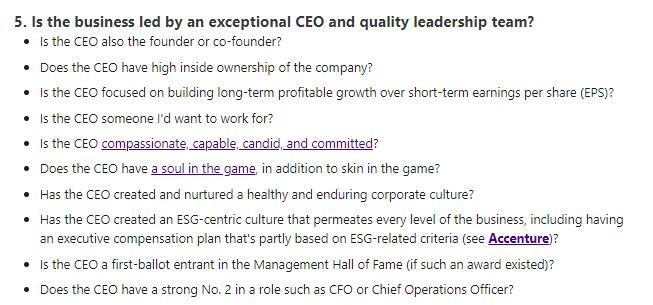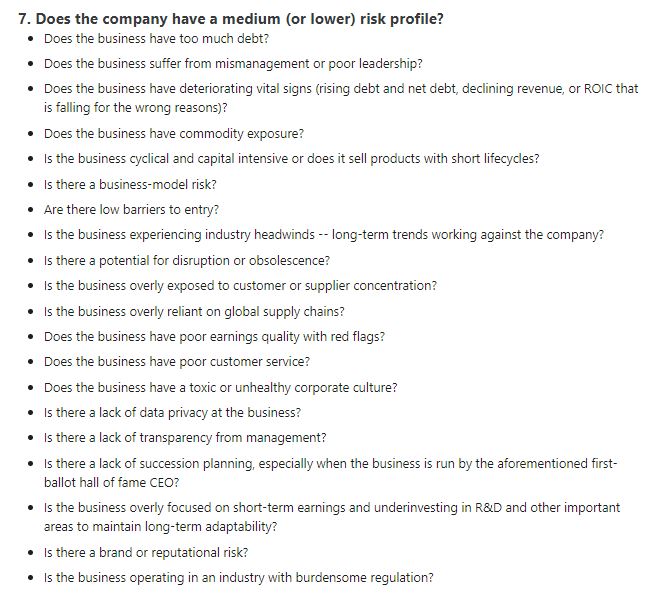
Phenomenal "Investing Checklist" by John Rotonti of The Motley Fool.👏
One of the best and most comprehensive checklists I've ever seen.
fool.com/investing/2020…
One of the best and most comprehensive checklists I've ever seen.
fool.com/investing/2020…
The 10 main questions and the sub-questions in each are so well rounded and make you take a good 360deg view of the Business and it's industry. 

• • •
Missing some Tweet in this thread? You can try to
force a refresh













